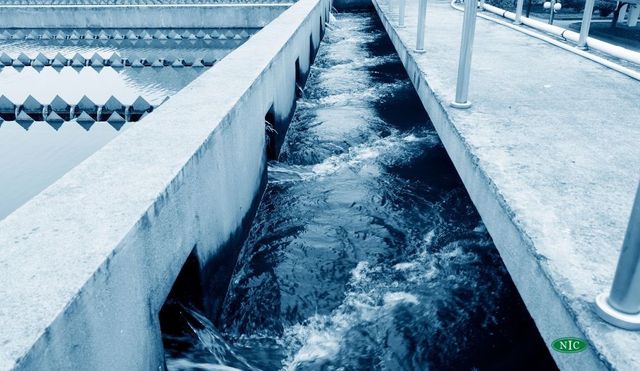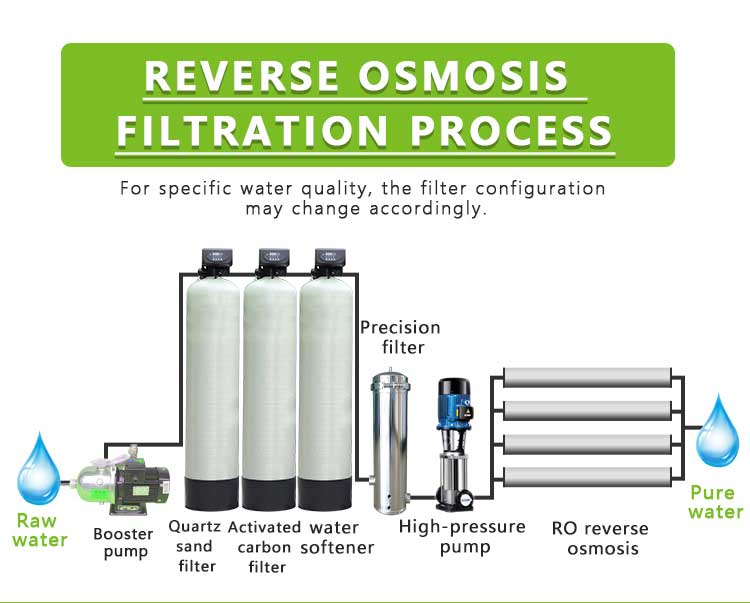How to Collaborate With Water Technology Startups for Mutual Growth
What Are the Sorts Of Water Technology Startups Transforming the Sector?
The water Technology sector is experiencing significant transformation through a selection of innovative startups. These business are presenting smart water management solutions and advanced purification systems, amongst other modern technologies. They address essential issues such as water top quality, effectiveness, and shortage. As these modern technologies progress, they lead the way for sustainable methods. The landscape is intricate, raising inquiries about the most impactful advancements and their long-term implications.
Smart Water Administration Solutions
Smart water management services represent a transformative technique to enhancing water usage and distribution. These services leverage Technology to improve performance, decrease waste, and boost resource appropriation. Start-ups in this sector utilize numerous tools, consisting of IoT gadgets, real-time surveillance systems, and data analytics, to make it possible for districts and sectors to track water intake extra accurately. By utilizing innovative algorithms, these innovations can predict need patterns and recognize potential leaks, facilitating positive upkeep.

Advanced Filtering and Filtration Technologies
As water quality problems expand, advanced filtration and purification modern technologies have actually become vital services for making certain secure and tidy water supplies. These technologies utilize sophisticated materials and approaches to efficiently eliminate contaminants, consisting of germs, hefty metals, and microplastics. Startups in this industry are creating systems that use nanotechnology, membrane filtering, and ultraviolet light therapy, enhancing performance and performance in water purification procedures.
These modern technologies can be tailored for different applications, from municipal water treatment centers to specific household systems, dealing with the diverse needs of customers and sectors. Lots of business concentrate on energy-efficient services, consequently decreasing the ecological effect of water treatment. The surge of smart filtration systems, which integrate information and sensing units analytics, permits real-time tracking and management of water top quality. Overall, these innovative modern technologies play a significant function in guarding public wellness and protecting beneficial water resources.
Lasting Desalination Techniques
Lasting desalination approaches are acquiring interest as practical solutions to water deficiency. By incorporating renewable resource resources and employing cutting-edge filtering innovations, these techniques intend to reduce ecological effects while boosting efficiency. Checking out these improvements discloses considerable possibility for transforming salt water right into a lasting freshwater source.
Renewable Resource Assimilation
While the global need for freshwater remains to increase, ingenious startups are exploring renewable resource combination to improve lasting desalination approaches. These business are harnessing solar, wind, and various other renewable energy resources to power desalination processes, substantially decreasing reliance on fossil fuels. By utilizing renewable resource, startups intend to make desalination much more eco-friendly and economically viable. Furthermore, some are creating crossbreed systems that combine standard desalination modern technologies with renewable resource remedies, enhancing effectiveness and reducing carbon footprints. These improvements not just address water deficiency however likewise add to a much more sustainable power landscape, showcasing the potential harmony in between water Technology and renewable resource. As these start-ups grow, they play a necessary role fit the future of sustainable water administration.
Ingenious Purification Technologies
Cutting-edge filtering technologies are emerging as a pivotal part in the mission for sustainable desalination techniques. These advancements concentrate on boosting effectiveness and lowering power intake in the desalination process. Start-ups are developing unique membranes that substantially boost salt denial rates while lessening fouling, which commonly obstructs efficiency. Methods such as onward osmosis and bio-inspired purification systems are acquiring grip, supplying eco-friendly choices to standard methods. Furthermore, incorporating nanotechnology right into filtering materials improves their effectiveness, permitting reduced operational prices. The drive in the direction of sustainability is likewise prompting research into hybrid systems that integrate numerous filtering approaches, therefore optimizing water top quality and resource healing. As these modern technologies evolve, they assure to reinvent water treatment and ease of access worldwide.
Water Top Quality Surveillance and Analytics
Water quality surveillance and analytics are increasingly driven by ingenious sensing unit modern technologies that supply essential understandings into water safety. These advancements make it possible for real-time information analysis, permitting immediate feedbacks to potential contamination. On top of that, the application of anticipating analytics improves the capability to anticipate water top quality fads, inevitably enhancing public wellness and source management.

Cutting-edge Sensor Technologies
As the demand for tidy and risk-free water increases, sensor technologies for keeping an eye on water quality have become essential devices in resolving this challenge. These cutting-edge sensors are made to discover a variety of impurities, including heavy steels, bacteria, and chemicals, providing real-time data on water purity. The integration of sophisticated products and miniaturized elements has actually caused highly sensitive gadgets that can operate in varied atmospheres, from city systems to remote water sources. In addition, numerous startups concentrate on developing IoT-enabled sensing units that assist in remote tracking, allowing for aggressive monitoring of water sources. By enhancing the precision and availability of water quality data, these innovations play an essential role in making certain public health and environmental sustainability.
Real-Time Information Analysis
Advancements in sensing unit modern technologies have actually led the way for advanced real-time data analysis systems in water top quality tracking (Water Technology Startups). These systems allow constant evaluation of numerous water top quality parameters, such as turbidity, impurity, and ph levels, offering prompt understandings right into water conditions. Start-ups in this industry take advantage of cloud computing and machine knowing formulas to process vast quantities of information efficiently. This real-time analysis permits quick detection of abnormalities and potential threats, guaranteeing prompt reactions to water high quality issues. Additionally, straightforward control panels existing data aesthetically, making it easily accessible to stakeholders, including towns and environmental companies. Consequently, these innovations foster improved decision-making and positive monitoring of water resources, advertising public health and wellness and environmental sustainability
Anticipating Analytics Applications
While real-time information evaluation supplies prompt understandings right into water quality, anticipating analytics applications take an aggressive technique by forecasting potential problems prior to they emerge. These applications make use of sophisticated algorithms and historical information to identify fads and patterns in water quality metrics, enabling early treatment. Startups in this sector utilize equipment learning and huge information analytics to predict contamination occasions or equipment failures, allowing water monitoring firms to designate sources better. Additionally, predictive analytics can enhance regulatory conformity by preparing for high quality problems that may bring about infractions. By carrying out these modern technologies, organizations can substantially boost their feedback times, lower operational expenses, and ultimately guarantee more secure water for communities. This forward-thinking approach is important for modern water management methods.
Drip Discovery and Infrastructure Management
Efficient leakage discovery and facilities administration are crucial for keeping the honesty of water systems, particularly as aging facilities becomes more widespread. Start-ups in this field are leveraging innovative innovations such as acoustic sensors, satellite images, and fabricated knowledge to determine leaks promptly and precisely. By utilizing real-time information, these options help energies keep an eye on pipeline problems and optimize upkeep schedules.
Ingenious startups are also establishing predictive analytics devices that analyze historic information to anticipate prospective failures, allowing for aggressive framework administration. Furthermore, integration with geographic information systems (GIS) boosts the visualization of water distribution networks, helping with better decision-making.
These technologies not just reduce water loss yet also minimize functional costs and boost service dependability. As the need for efficient water management grows, leakage discovery and infrastructure administration startups are becoming crucial players in making certain sustainable water systems for the future.
Rainwater Harvesting and Reuse Solutions
Rain harvesting and reuse systems have become cutting-edge remedies to address water shortage and advertise lasting resource administration. These systems capture, store, and utilize rain for various applications, greatly decreasing reliance on traditional water sources. By click here gathering rain from roofs or other surfaces, these innovations allow neighborhoods and organizations to utilize an or else thrown away resource.
Startups in this sector concentrate on establishing effective collection systems, purification methods, and storage options that optimize water quality and functionality. Advanced monitoring technologies are also incorporated to assure peak system efficiency and maintenance. Additionally, combination with wise home systems enables real-time management and efficient water usage.
These efforts not only add to water preservation however likewise lower energy expenses for users. As recognition of environmental challenges expands, rainwater harvesting and reuse systems stand apart as practical, lasting services efficient in changing water management techniques across various areas.
Agricultural Water Effectiveness Innovations
As global demand for food remains to climb, agricultural water efficiency technologies have actually ended up being important in ensuring lasting farming methods. Start-ups are leveraging Technology to establish solutions that maximize water usage in farming. Advanced watering systems, such as drip and accuracy watering, enable farmers to deliver water straight to plant roots, decreasing waste. Furthermore, dirt wetness sensing units and climate analytics devices help farmers monitor conditions in real-time, enabling them to irrigate just when necessary.
Moreover, the integration of man-made knowledge and artificial intelligence enhances decision-making, enabling for extra efficient water administration approaches. These innovations not just raise crop yields however also decrease water intake, which is critical in water-scarce regions. By taking on these modern technologies, farming stakeholders can contribute to a more sustainable food system, attending to both ecological issues and the growing worldwide populace's requirements. The future of agriculture depends upon these water performance technologies, noting a necessary change in farming practices.
Often Asked Concerns
Exactly How Do Water Technology Startups Secure Financing for Their Developments?
Water Technology start-ups safe financing with numerous networks, consisting of financial backing, government grants, crowdfunding platforms, and partnerships with well established firms. These avenues enable them to innovate and scale their solutions to address pushing water difficulties.
What Difficulties Do Start-ups Face in the Water Technology Sector?
Startups in the water Technology sector face numerous challenges, including regulatory hurdles, high funding demands, competition from recognized business, technological complexity, and the requirement for public understanding and acceptance of ingenious services in water management.
How Can Consumers Benefit From Water Technology Innovations?
Customers can profit from water Technology developments through boosted water high quality, enhanced accessibility, price financial savings, and boosted conservation efforts. These advancements cause healthier communities, lasting techniques, and better durability against water deficiency and environmental obstacles.
What Function Do Government Rules Play in Water Technology Startups?
Government regulations greatly affect water Technology startups by establishing conformity criteria, incentivizing innovation through gives and subsidies, and shaping market access approaches. These laws can either foster growth or enforce obstacles depending on their complexity and enforcement.
How Do Start-ups Measure the Effect of Their Technologies on Water Preservation?
Startups measure the impact of their innovations on water preservation via metrics such as water financial savings, performance renovations, individual fostering rates, and eco-friendly benefits, typically utilizing information analytics and pilot tasks to verify their efficiency. (Water Technology Startups)
The rise of smart water administration remedies shows an expanding acknowledgment of the need for sustainable water methods, inevitably adding to the resilience of water systems worldwide. As water high quality worries expand, progressed filtration and filtration technologies have actually emerged as important solutions for making certain clean and secure water materials. These developments not just address water shortage yet additionally contribute to a more sustainable power landscape, showcasing the prospective harmony in between water Technology and renewable power. As the need for safe and clean water increases, sensing unit modern technologies for keeping track of water high quality have arised as vital devices in addressing this challenge. Customers can profit from water Technology developments with enhanced water quality, boosted ease of access, cost savings, and increased conservation initiatives.